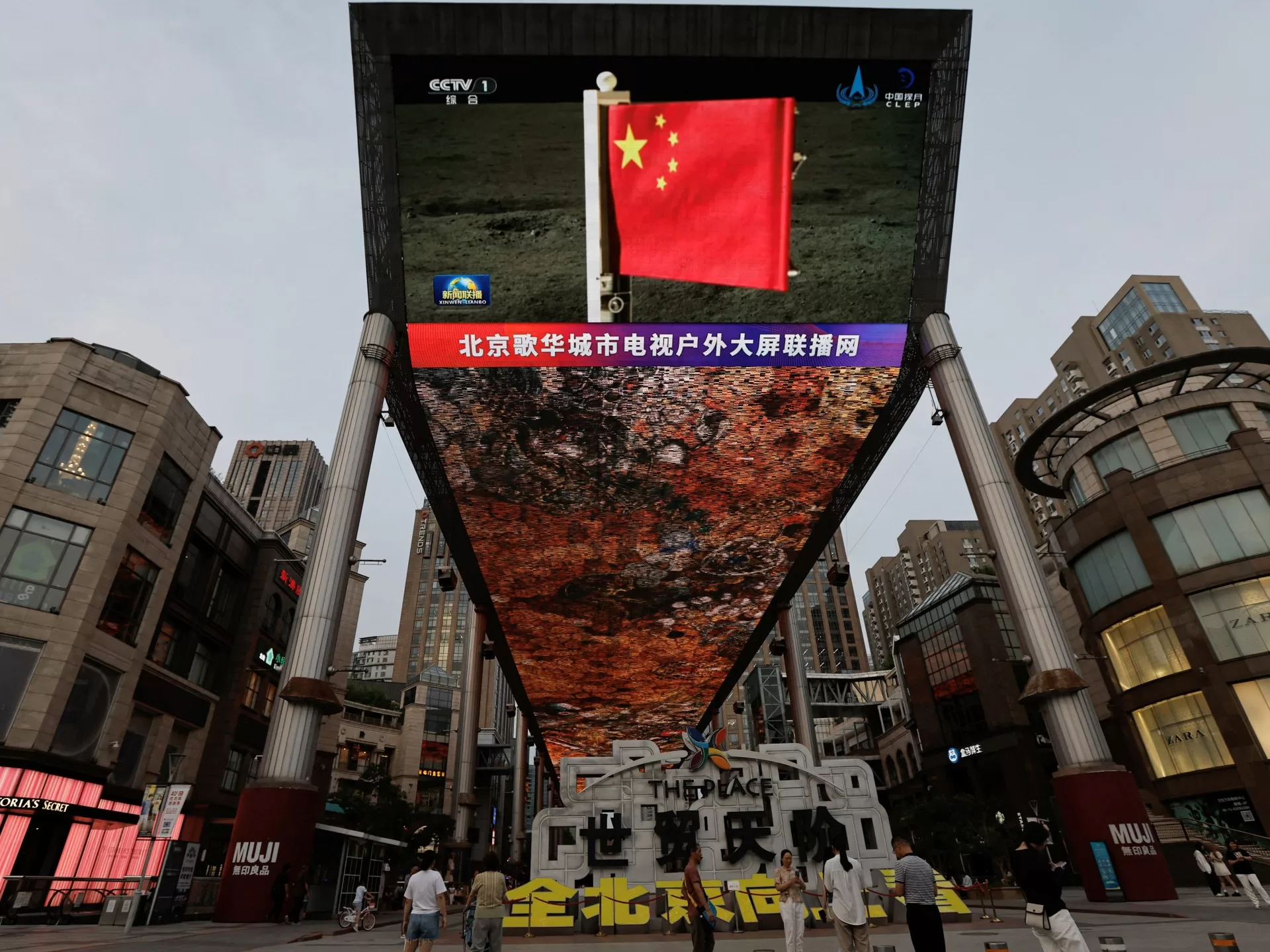China has warned NATO against “provoking confrontation” over its ties with Russia after the Western military alliance accused Beijing of being a “decisive enabler” of Moscow’s war against Ukraine.
The warning on Thursday came as NATO leaders meeting in Washington, DC, promised to bolster Ukraine and Europe’s defences against Russia and made clear that China was also becoming a focus of the alliance.
A spokesperson for Beijing’s mission to the European Union said NATO should “stop hyping up the so-called China threat and provoking confrontation and rivalry, and do more to contribute to world peace and stability”.
China, which has deepened strategic ties with Russia, has refused to condemn Moscow’s invasion of Ukraine. It has presented itself as a neutral party in the war and says it is not sending lethal assistance to either side, unlike the US and other Western nations.
Beijing, however, has offered a critical lifeline to Russia’s isolated economy, with trade booming since the conflict began.
The 32 NATO members, in their final communique on Wednesday, expressed “profound concern” over Beijing’s deepening partnership with Moscow. They said China has “become a decisive enabler of Russia’s war against Ukraine through its so-called ‘no limits’ partnership and its large-scale support for Russia’s defence industrial base”.
“This increases the threat Russia poses to its neighbours and to Euro-Atlantic security,” they said, urging China “to cease all material and political support to Russia’s war effort”. Beijing “cannot enable the largest war in Europe in recent history without this negatively impacting its interests and reputation”, they added.
NATO Secretary-General Jens Stoltenberg told reporters that China provides equipment, microelectronics and tools that are allowing Russia “to build the missiles, to build the bombs, to build the aircraft, to build the weapons they use to attack Ukraine”.
He said it was the first time all NATO allies had stated this so clearly in an agreed document.
Beijing’s spokesperson dismissed the criticism, however, saying, “As we all know, China is not the creator of the crisis in Ukraine.”
“The declaration of the NATO summit in Washington is full of Cold War mentality and belligerent rhetoric, and China-related content is full of provocations, lies, incitement and smears,” the official told reporters.
They added that China’s core position is to “promote peace talks and political settlement”, a reference to a 12-point peace plan Beijing issued more than a year ago that set out general principles for ending the war.
The plan received a lukewarm reception at the time in Russia and Ukraine.
NATO member countries, in this year’s declaration, also reiterated that China poses “systemic challenges” to Euro-Atlantic security, including by carrying out sustained, malicious online and hybrid activities, such as disinformation campaigns.
They also expressed concerns over China’s space capabilities and activities, and raised alarms that Beijing is rapidly expanding and diversifying its nuclear arsenal with more warheads and a larger number of sophisticated delivery systems.
Rachel Rizzo, a non-resident senior fellow at the Atlantic Council’s Europe Center, said NATO does not view China as a threat, but as a challenge.
NATO has made it clear that the “alliance discussing China is not about pushing the alliance into the Indo-Pacific region, rather it is about responding to China’s political, economic inroads, technological in roads into Europe, as well as China buying up European infrastructure,” Rizzo told Al Jazeera. “So it’s not about expanding the theatres of operations for NATO, but it’s about responding to this very sort of meshed geographical theatre that we see around the globe now.”
The NATO summit included leaders and deputies from the alliance’s Asia Pacific partners, Australia, New Zealand, Japan and South Korea. The Asian countries have forged stronger ties with NATO in recent years amid rising concerns over China’s assertiveness in the South China Sea and the East China Sea.
In the final declaration, NATO members affirmed the importance of the Asia Pacific partners to the alliance and said they were “strengthening dialogue to tackle cross-regional challenges”.
It said NATO and the Asia Pacific partners plan to launch four projects to support Ukraine, bolster cooperation on cyber-defence, counter disinformation and work on artificial intelligence.
The NATO members said these projects would “enhance our ability to work together on shared security interests”.
